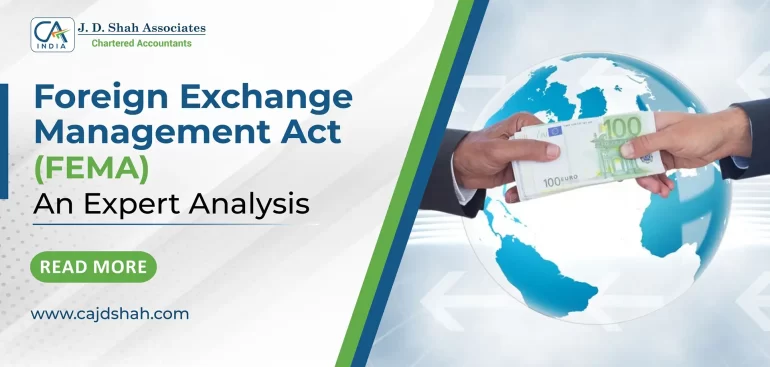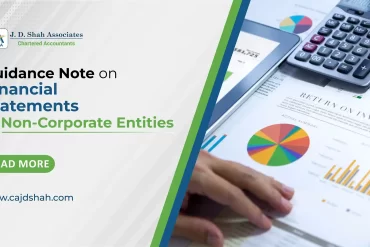The Foreign Exchange Management Act (FEMA), 1999 provides the legal and procedural framework for managing foreign exchange in India, including Overseas Direct Investment (ODI). With Indian businesses increasingly tapping into international markets, understanding FEMA valuation rules and regulations becomes vital. Whether you’re planning cross-border expansion or need reliable business valuation services, Contacting a Chartered Accountant or a Registered Valuer is your first step toward compliance.
The Evolution of ODI Regulations
Initially governed by FERA (1973), the approach to foreign investments took a liberal turn with the introduction of FEMA in 1999. This shift supported India’s globalization efforts and created new opportunities for Indian enterprises abroad. Today, Qualified Valuers in Mumbai and across India play a critical role in ensuring regulatory adherence through proper valuation methodology for overseas investments.

Current Framework: FEMA & RBI Regulations on ODI
As of 2022, the Reserve Bank of India (RBI) governs ODI through:
- Foreign Exchange Management (Overseas Investment) Rules, 2022
- Foreign Exchange Management (Overseas Investment) Regulations, 2022
- FEMA Directions, 2022
These updates replaced the earlier 2004 regulations, providing a more structured and simplified compliance framework.
Key Definitions
- ODI (Overseas Direct Investment): Includes acquisition of equity abroad through subscription, purchase of shares, bidding, or other recognized means.
- Indian Entity: Includes companies under the Companies Act, LLPs, statutory bodies, etc.
Whether you’re initiating an ODI or restructuring your global footprint, a valuation firm in Mumbai can guide you with RBI-compliant business valuation support.
August 2022 Overhaul: What Changed?
Major Reforms:
- Automatic Route Expanded: Reduced need for RBI approvals; automatic route applies to most ODI transactions.
- Broader ODI Definition: Control-based investments and equity holdings over 10% now fall under ODI.
- New OPI Category: For non-controlling investments below 10%.
- Financial Limits:
- Companies: Up to 400% of net worth
- Individuals: Up to USD 250,000 annually (under LRS)
- Round-Tripping Clarified: Specific RBI guidelines for compliance.
- Investments in IFSCs: Resident individuals allowed unrestricted investments.
- Deferred Payments: Formalized structure for payment flexibility.
If you’re unsure about the eligibility or compliance under these changes, it’s best to contact a chartered accountant or consult with a registered valuer for a detailed assessment.
Key Amendments (2023–2024)
July 2023
Indian entities can issue corporate guarantees for second/subsequent-level step-down subsidiaries—subject to control and exposure criteria.
October 2023
Financial institutions enjoy simplified norms for establishing overseas offices and branches.
January 2024
Mandatory use of FIRMS platform for reporting ODI under the Overseas Investment Module.
March 2024
ODI write-offs in cases of liquidation or dissolution can now be executed without RBI approval, under defined conditions.
These changes underline the importance of robust due diligence and timely reporting, making it essential to work with the best CA firm in Borivali for accurate documentation and representation.
Compliance Checklist for ODI
Mandatory Reporting
- Form ODI – Submitted at the time of investment.
- Annual Performance Report (APR) – Due by June 30 each year.
- OIAR – Detailed annual reporting on all investments.
- Form OPI – For specific portfolio investments.
- Delayed Reporting – Permitted with Late Submission Fees (LSF).

Valuation and Due Diligence
- FEMA Valuation by Registered Valuer is mandatory in cases of share acquisition or transfer.
- Enhanced scrutiny for AML/CFT compliance.
- Ultimate Beneficial Owner (UBO) details must be verified.
For such high-stakes compliance, relying on Qualified Valuers in Mumbai and experienced CA professionals ensures you meet RBI expectations without error.
Strategic Structuring for Overseas Investment
Investment Vehicles
- Holding Companies: Facilitate tax and legal compliance across jurisdictions.
- Joint Ventures vs. Wholly-Owned Subsidiaries: Need-based structuring for market entry and control.
- Step-Down Subsidiaries: Requires careful valuation and exposure analysis.
A proper valuation methodology, applied by a business valuation service provider, supports sound decision-making and reduces tax and compliance risks.
Tax Implications
- DTAA Advantage: Leverage India’s treaties to minimize tax burdens.
- POEM Rule: Maintain foreign subsidiary independence to avoid Indian taxation.
- Transfer Pricing: Maintain arm’s-length pricing with related entities.
- GAAR Compliance: Ensure overseas structures reflect economic substance.

Sectoral Focus
Financial Services
Investments in this sector require:
- Higher net worth
- Proven profitability
- Prior approvals
Real Estate
Restrictions apply except for:
- Construction projects
- Property investment companies
Strategic Sectors
Sensitive sectors demand:
- Additional security clearance
- In-depth disclosures
- Specific undertakings

If you’re investing in any of the above, consult a valuation firm in Mumbai for precise RBI-compliant evaluations.
Looking Ahead: Challenges & Opportunities
Emerging Trends
- FinTech, Crypto, ESG: Demand newer compliance strategies.
- Geopolitical Risk: Needs proactive structuring and risk valuation.
Future Outlook
- Liberalized Norms: Anticipated increase in ODI limits.
- Digital Compliance Ecosystems: Complete shift to online submissions.
- Global Alignment: Tighter norms on UBO, transfer pricing, and anti-avoidance.
Conclusion
Navigating FEMA valuation and ODI regulations can be complex—but with the right expertise, it can be seamless. Whether you’re planning a cross-border merger, acquiring a foreign entity, or restructuring international holdings, collaborating with the best valuation firm in Borivali gives your business the edge.
At every stage—from business valuation service to RBI reporting and tax structuring—contact chartered accountants and registered valuers to ensure strategic and regulatory success at JD Shah Associates.
![]()




